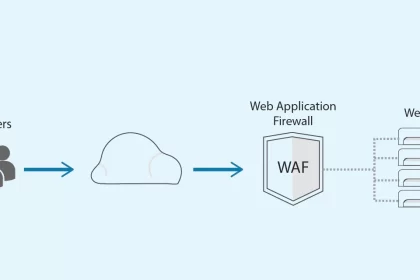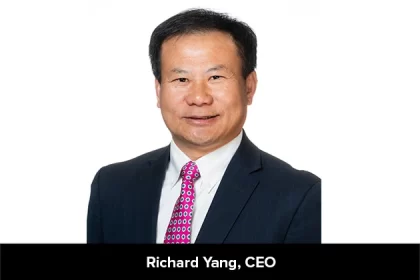A study conducted by the Annenberg Public Policy Center has found that parents who had a conspiracy mindset in 2021 had a reluctance to vaccinate their children in 2022. As of May 2023, only 39% of children aged between 5 and 11 received at least one dose of a CDC (Centers for Disease Control and Prevention)- recommended vaccine against COVID-19. The study involved nearly 2,000 US adults to shed light on the conspiracy mindset that played an instrumental role in their reluctance to vaccinate children in 2022. Apart from the pandemic scenario, general vaccine hesitancy is often observed among adults, triggered by the misinformation related to the childhood vaccination schedule.
Let’s dive deeper into the causes behind this reluctance of adults to get their children vaccinated and the association of conspiracy theories in aggravating this hesitance. This article from The CEO Views contributes to the understanding of these theories and their association in childhood vaccination.
Role of Negative Beliefs in Vaccination Refusal
Vaccination refusals are often related to philosophical beliefs and rigid faiths regarding health and immunity being superior to artificial medicines. Another false fact surfaced earlier that virus-based vaccines require virus culturing in specific human cells. However, these beliefs are found to be untrue as vaccinations protect health and boost immunity.
People in backward areas believe the childhood vaccination schedule is designed to overload the immune system of a child by giving several vaccines at the same time. They demanded a combination of vaccines to reduce parental anxiety and fewer injections for the child.
COVID-19 and the Conspiracy Theories
Anti-vaccination conspiracy theories have been associated with heightened vaccine hesitancy. Before diving into the role of conspiracy theories in adults, particularly parents’ reluctance in children’s vaccination, let us know the importance of vaccines first.
Importance of Vaccinations
Vaccinations are a crucial part of a public health strategy against preventable diseases by stimulating the body’s immune system to recognize and fight off pathogens. They not only curb the spread of infections but also protect community immunity effectively. The COVID-19 vaccination was also developed to control the escalating outbreaks of the coronavirus to help people combat the deadly disease.
What are Conspiracy Theories?
A conspiracy is a concealed and coordinated effort by two or more actors to bring about an outcome. These efforts, if secretive and bring about negative outcomes, are considered conspiracies. Conspiracies that hold the power to subvert, galvanize, and divide communities are a matter of concern for researchers interested in conspiracy theories. A thorough review of the literature explores these theories and finds that these theories explain events or circumstances as a result of a secret ploy, usually by powerful conspirators.
Role of Conspiracy Theories in Vaccination: A Myth
Before analyzing the role of a conspiracy theory in the childhood vaccination schedule, let us see the reasons behind people’s faith in this theory. People’s beliefs in conspiracy theories stem when their epistemic motives being challenged with too much, incomplete, too little, ambiguous, or contradictory information. Also, these theories often provide a sense of control and safety in times of uncertainty. Studies conducted on conspiracy beliefs have shown an association of such beliefs with feelings of anxiety, a lack of control, and powerlessness.
The prevalence of these theories arises mostly in crises, such as the COVID-19 pandemic. People’s belief in misinformation and conspiracies concerning COVID-19 vaccines created this resistance among adults to take the vaccinations. In some places, people refused to believe in COVID-19’s existence, and for some, it was hard to believe that a flu-like illness could be life-threatening. Some people believed that it was a business for healthcare workers and doctors who were diagnosing every fever as COVID-19 for their own interest. One of the biggest conspiracy theories was the claim that COVID-19 was a pre-planned project to conceal Bill Gates’ trackable microchip conspiracy.
Social media played a major role in fueling this conspiracy, creating anxiety in people’s minds that ultimately led to their hesitation in taking the vaccines for their children. Other people believed this virus to be a bio-warfare weapon. The “Plandemic” video was another medium that showed COVID-19 to be a conspiracy of the pharmaceutical companies to sell their products.
Annenberg Public Policy Center Study on Conspiracy Theory
The study conducted by the Annenberg Public Policy Center has shown that 17% of the 2,000 US adults uphold a conspiracy mindset that accepts conspiracy theories about the workings of government and other centers of power. They tend to be skeptical of government authority and associated health agencies like the CDC or the FDA (Food and Drug Administration).
They were likely to believe Covid-specific conspiracies concerning the creation of the vaccines and the pandemic management. These people were less worried about how the COVID-19 virus could harm their children, compelling them to resist vaccination for their children. Among all the participants, only 12% recommended giving the COVID-19 vaccination to children between the ages of 5 and 11.
Conspiracy Theories in Childhood Vaccination
In childhood vaccination schedules, these conspiracy theories play an important role in general. It has been mentioned earlier about the myths, like overloading a child’s immunity with multiple vaccinations at a time, about the creation of the vaccines, and others, as a driving factor among adults to prevent their children from getting vaccinated. Despite having no scientific or social explanation of the trustworthiness of these theories, many people are still found to be hesitant about child vaccination in many areas of the world.










